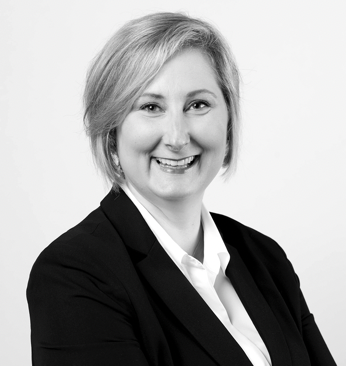Preventing surprise medical bills is the goal. These four obstacles make it harder.
Financial leaders of healthcare systems outlined some of the challenges in reducing unexpected bills in a new survey.
On Jan. 1, Americans are slated to gain new protection under federal law to avoid being shocked with unexpected medical bills.
The No Surprises Act, hailed as offering consumers important new protections, takes effect at the start of the new year. But a survey of healthcare systems reveals some of the obstacles in preventing customers from getting bills they weren’t expecting.
Amy Raymond

AKASA, a California firm which provides artificial intelligence solutions for healthcare operations, surveyed hundreds of financial leaders at hospitals and healthcare systems. Financial leaders expressed several concerns.
The key challenge is getting the correct information from patients when they are being admitted, said Amy Raymond, head of revenue cycle operations at AKASA. It’s simple in theory but challenging in real-life situations, for some obvious situations.
“Patients don’t always give you everything they need, especially in urgent or stressful situations,” Raymond said in a phone interview.
If the healthcare provider is receiving incorrect information at the beginning, it leads to billing problems down the road.
Financial leaders expressed four key challenges in preventing patients from getting surprise medical bills.
Unpredictability: The inability to predict reimbursement for providers of clinical services in some procedures (example: anesthesiology for surgery).
Resources: Some healthcare systems have a limited amount of staff to provide patients with financial counseling.
Delays: Payers offer late or incorrect responses on questions about eligibility.
Inaccuracies: Insufficient information collected when patients are registered.
Raymond said the concerns identified by those surveyed all shared equal weight. When asked if she was surprised by the survey, Raymond said she wasn’t because these have been concerns hospital and healthcare officials have shared for some time in reducing unexpected bills.
The No Surprises Act is a step in the right direction, but she said plenty of challenges remain.
“The challenge doesn’t stop when you introduce more requirements that are great for the patients, but it puts more onus on the entire financial clearance process,” Raymond said.
To reduce unexpected bills, healthcare providers need to walk patients through the billing process as quickly as possible, she said.
“It pushes the importance of getting the information to the patient as quickly as possible, so they can make an informed decision,” she said. “Health care reimbursement is difficult to navigate. The average patient doesn’t understand all the ins and outs."
It’s clear healthcare officials must do everything possible to prevent patients from getting substantial medical bills from providers they aren’t expecting.
Healthcare providers can reduce inaccuracies and surprise billing by moving to automation, Raymond said. A previous AKASA survey in August found 78% of healthcare systems were using or beginning to implement automation systems revenue cycle management.
“It is a way to kind of expand your workforce,” Raymond said. “Good automation can assist in not doing everything, but allowing your teams to wrap their arms around the critical functions.”
“We can’t deny the value and the benefit of automation,” she added.
Financial counselors also play a critical role in helping patients understand billing and making good decisions about care. They can help patients find out if they qualify for assistance. Ideally, counselors are working with patients before they receive care. But as the survey suggested, some healthcare systems don’t have as many financial counselors as they’d like.
“It’s an area people are having trouble staffing,” Raymond said.
Patient advocates are undoubtedly hoping the No Surprises Act lives up to its billing. Consumers have long bemoaned surprise medical bills as a serious problem that adds unwanted stress, especially for families already dealing with heavy medical expenses.
One in three insured adults received an unexpected medical bill in the previous two years, according to a Kaiser Family Foundation survey. Two in three adults say they are worried about getting surprise medical bills.
Even before the No Surprises Act takes effect in a few weeks, groups representing doctors and hospitals have sued the federal government over the law.
The American Medical Association and the American Hospital Association have filed a joint suit over a provision of the law pertaining to resolving disputes in billing. The groups contend regulators are giving insurers an unfair advantage in the resolution process in billing disputes. The groups argue it could hurt patient care and leave providers getting paid less than they should.
The groups aren’t seeking to block the law from taking effect, but they are seeking a stay on the regulations governing billing disputes until the flawed provision can be fixed.
Raymond said it’s unclear how much the law will succeed in protecting patients.
“Every action and every law and rule, even with good intent, has fallout and we’ll see how this benefits patients materially,” she said.
But she said it’s clear patients need more protection.
“I know how painful it is to have surprise medical debt or be unprepared to pay something,” Raymond said.
AKASA surveyed 514 chief financial officers and revenue cycle leaders at hospitals and health systems between Sept. 30 and Oct. 17.
Telehealth faces a looming deadline in Washington | Healthy Bottom Line podcast
February 12th 2025Once again, the clock is ticking on waivers for telemedicine and hospital-at-home programs. Kyle Zebley of the American Telemedicine Association talks about the push on Congress and the White House.